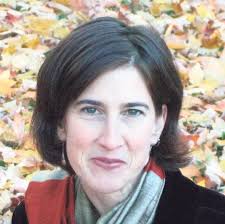Rabbi Miriam Margles

For so many of the Jews that I work with, early experiences of Judaism or of other Jews were marginalizing, fearful, shaming, parochial, judgmental, exclusionary and insular. There are certainly multiple factors that have contributed to experiences of Jewish prayer and ritual (kedusha), learning (chochma) and community (kehilla) feeling irrelevant and distancing. One of the lenses we need to use to understand the dynamics shaping these alienating experiences is that of anti-Semitism’s distorting impact. The cumulative terror and grief carried by many Jews leads to the Jewish reactions of survivalism and defensive protectionism on the one side and assimilation and protective rejectionism on the other. This lens gives me different tools for healing and transforming the symptoms of spiritual malaise, alienation, indifference and a rejection of tribalism.
I think it’s worthwhile pointing to some of the dynamics more specifically, even though these are very broad brushstrokes. On the one hand, we have unconsciously internalized various distorted, oppressive messages about Jews that we turn against ourselves and/or turn against types of Jews different from ourselves. So many of the Jews I work with who define themselves as “culturally Jewish” eschew those who are “too Jewish”, finding them embarrassing, narrow-minded and insular, and defining themselves in contrast to them. I can only imagine being “too Jewish” as a problem if one has absorbed a twisted belief that being Jewish is ever a problem – a belief right at the heart of anti-Semitism. I have encountered numerous Jews in interfaith and intercultural relationships who admit that they have always found Jews somewhat unattractive. It is stunning to think about how desire and disgust are shaped when the anti-Semitic message that Jews are disgusting is part of the subtle yet pernicious air we breathe. I grew up with explicit and implicit messages about the need to prove myself as excellent, to always find ways to be useful but never to be too visible. I don’t think my parents or my Jewish day school ever explicitly drew parallels between this drive for perfection and for being useful and needed with the historic demand for Jews to justify our existence in the face of the ever-hanging threat of annihilation, but its undercurrent was strong and filled me with anxiety and fear.
On the other hand, mixed in with internalized aspects of anti-Semitism’s twisted messages about Jews, we also, in various ways, unconsciously absorb messages from within the Jewish community and from our families about what is required in order to survive. These coping mechanisms, survival strategies, beliefs and behaviors have also been passed down over generations and often become rigid, reactive and defensive.
At its most basic level, this takes the form of a fear of annihilation, urgency about survival and Jewish continuity at all costs, and as an end in itself that runs deep in the Jewish psyche. This core fear often categorizes other Jews as either “with us” or “against us,” and overtly or subtly defines the parameters of what one should believe, how one should practice Judaism, what one can or can’t say about Israel and Palestine and narrowly and defensively circumscribes who is included or excluded from the kehillah. It has been readily expressed in the guilt-heavy narrative that many Gen X’ers received that you, personally, must ensure Jewish survival. Therefore, if you marry someone who is not Jewish or if you don’t publicly support Israel, you will be giving Hitler a posthumous victory (to quote one on my day school teachers). This same fear has historically expressed itself in materialism that has its roots in money as a means to buy safety and protection. This fear has also been expressed in the assimilationism that many Baby Boomers received as their parents (consciously or unconsciously) sought to protect them from the shame and fate of being an identifiable or parochial Jew. Many Jews find safety and purpose in these categories of survivalism (without consciously framing them as such) while most of the Jews I work with have found in these dynamics the reasons to reject other Jews and turn away from Judaism and Jewish community. Creating alternative communities and new frameworks, clarifying meaningful values and inspiring and accessible ways to engage with them certainly infuse Judaism with new life and aspirational purpose. At the same time, there is no way to simply sidestep the dynamic of actions and reactions that are crowded by the wounds that anti-Jewish oppression has inflicted.
All of this deserves insightful, compassionate exploration, explicitly woven into our new paradigms and strategies and implicitly shaping our work, in order to develop an understanding of how these dynamics may affect each of us, as well as how they live in other Jews who ‘push our buttons’. Our relationships across generations and denominations is dependent on this. All of it deserves conscious repair so that we can make thoughtful, wide-hearted choices rather than unconscious reactions; so that we respond to the present with flexibility and discernment; so that we develop the capacity, mutual commitment and desire to engage with one another honestly, non-judgmentally and wisely, particularly when confronted by difference and conflict.
This repair is also necessary so that we can remove the obstacles to the creative and enriching engagement with kedusha, chochma, tzedek and kehillah, building a vibrant, joyous, and caring Jewish life together and reaching widely and responsibly into the wider world.
Rabbi Miriam Margles, rabbi of the Danforth Jewish Circle in Toronto, facilitates workshops integrating Jewish learning and creative exploration in movement, voice and creative writing, particularly addressing conflict, systemic oppression, spiritual practice, mindfulness and healing. She is co-founder of Encounter (encounterprograms.org) and composes original music for Jewish prayer.

